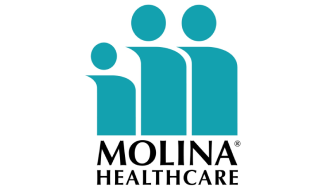Learn More
Vancouver, Washington, United States
Lifeline Connections Meriwether Place
Unclaimed
Unclaimed
Unclaimed

Contact Lifeline Connections Meriwether Place
Connect with Lifeline Connections Meriwether Place by calling them directly.
Are you the owner of this center?
Claim this center
About Lifeline Connections Meriwether Place
Meriwether Place, located in Vancouver, is a collaborative housing community owned and operated by Columbia Non-Profit Housing, with Lifeline Connections providing on-site offices and services. This partnership enables residents to access comprehensive mental health and substance use disorder services, including intensive community support through the Program of Assertive Community Treatment (PACT).
Comprehensive Community Care
The PACT team at Meriwether Place comprises a multidisciplinary group of mental health professionals dedicated to assisting highly vulnerable, homeless individuals. By offering personalized, community-based care, the program aims to help residents achieve stability and independence. This integrated approach ensures that individuals receive tailored support to address their unique behavioral health needs.
Collaborative Housing Resource
Meriwether Place combines stable housing with accessible, on-site behavioral health services. This integration not only provides residents with a secure living environment but also facilitates immediate access to the care and support necessary for their recovery journey. The collaboration between housing and healthcare services exemplifies a comprehensive strategy to promote long-term wellness and self-sufficiency among residents.
Read More

Insurance Accepted
Provider's Policy:Lifeline Connections accepts most insurance plans.
Nearby Centers to Consider

Center Overview
Men and Women
Men and women attend treatment for addiction in a co-ed setting, going to therapy groups together to share experiences, struggles, and successes.


Care Options






Treatment
Specializations
Drug Addiction
Drug addiction is the excessive and repetitive use of substances, despite harmful consequences to a person's life, health, and relationships.
Learn More
Co-Occurring Disorders
A person with multiple mental health diagnoses, such as addiction and depression, has co-occurring disorders also called dual diagnosis.
Learn More
Alcohol
Using alcohol as a coping mechanism, or drinking excessively throughout the week, signals an alcohol use disorder.
Learn More
Approaches
Evidence-Based
A combination of scientifically rooted therapies and treatments make up evidence-based care, defined by their measured and proven results.
Learn More
Individual Treatment
Individual care meets the needs of each patient, using personalized treatment to provide them the most relevant care and greatest chance of success.
Learn More
Therapies
1-on-1 Counseling
Patient and therapist meet 1-on-1 to work through difficult emotions and behavioral challenges in a personal, private setting.
Learn More
Trauma-Specific Therapy
This form of talk therapy addresses any childhood trauma at the root of a patient's current diagnosis.
Family Therapy
Family therapy addresses group dynamics within a family system, with a focus on improving communication and interrupting unhealthy relationship patterns.
Learn More
Life Skills
Teaching life skills like cooking, cleaning, clear communication, and even basic math provides a strong foundation for continued recovery.
Motivational Interviewing
Based on the idea that motivation to change comes from within, providers use a conversational framework to discover personalized methods for change.
Relapse Prevention Counseling
Relapse prevention counselors teach patients to recognize the signs of relapse and reduce their risk.
Learn More
Group Therapy
Two or more people meet with a therapist together. Patients get valuable peer support, strengthen interpersonal skills, and improve self-awareness.
Conditions We Treat
Anxiety
Anxiety is a common mental health condition that can include excessive worry, panic attacks, physical tension, and increased blood pressure.
Learn More
Bipolar
This mental health condition is characterized by extreme mood swings between depression, mania, and remission.
Learn More
Depression
Symptoms of depression may include fatigue, a sense of numbness, and loss of interest in activities. This condition can range from mild to severe.
Learn More
Obsessive Compulsive Disorder (OCD)
OCD is characterized by intrusive and distressing thoughts that drive repetitive behaviors. This pattern disrupts daily life and relationships.
Post Traumatic Stress Disorder
PTSD is a long-term mental health issue caused by a disturbing event or events. Symptoms include anxiety, dissociation, flashbacks, and intrusive thoughts.
Learn More
Trauma
Some traumatic events are so disturbing that they cause long-term mental health problems. Those ongoing issues can also be referred to as "trauma."
Learn More
Substances We Treat
Alcohol
Using alcohol as a coping mechanism, or drinking excessively throughout the week, signals an alcohol use disorder.
Learn More
Benzodiazepines
Benzodiazepines are prescribed to treat anxiety and sleep issues. They are highly habit forming, and their abuse can cause mood changes and poor judgement.
Chronic Relapse
Consistent relapse occurs repeatedly, after partial recovery from addiction. This condition requires long-term treatment.
Learn More
Co-Occurring Disorders
A person with multiple mental health diagnoses, such as addiction and depression, has co-occurring disorders also called dual diagnosis.
Learn More
Cocaine
Cocaine is a stimulant with euphoric effects. Agitation, muscle ticks, psychosis, and heart issues are common symptoms of cocaine abuse.
Learn More
Drug Addiction
Drug addiction is the excessive and repetitive use of substances, despite harmful consequences to a person's life, health, and relationships.
Learn More
Heroin
Heroin is a highly addictive and illegal opioid. It can cause insomnia, collapsed veins, heart issues, and additional mental health issues.
Methamphetamine
Methamphetamine, or meth, increases energy, agitation, and paranoia. Long-term use can result in severe physical and mental health issues.
Opioids
Opioids produce pain-relief and euphoria, which can lead to addiction. This class of drugs includes prescribed medication and the illegal drug heroin.
Learn More
Aftercare
Experience
Personal Amenities
Amenities
Activities
We love hearing about your treatment experience
Help individuals and families seeking treatment by sharing your first-hand experience with this treatment provider. Review Guidelines.

















